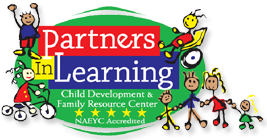Make it a family affair. Don't wait until the last minute to get your kids psyched for your holiday journey. If you involve them in the planning process, they're likely to be more invested in the trip. Let them help with things like packing, being in charge of small things. Have the children pick out the one thing they can take on the plane, if flying. Let your chldren pick out the books they want to take along for the car ride.
Clue kids in. Once you've nailed down the details, tell everyone exactly what you've got planned. Kids feel more secure when they know what to expect each day. Warn little ones about potentially scary situations, like the security check at airports if flying. Explain to them the security machine will take a picture of her teddy but that it will be waiting for her safely on the other side. If it's their first time flying prepare them for what will happen after boarding the plane, take off and landing especially.
Time your travel. If you can, plan your schedule with a few extra vacation days so you've got some wiggle room in case of bad weather, illness, or airline delays. This will also allow you to avoid the peak travel days just before (and after) Christmas and New Year's. If you're flying, try to book nonstop so you don't end up stuck for unforeseen circumstances. For road trips, log on to Google Maps (maps.google.com) to find the best route and to avoid road closures. It's also not a bad idea to travel at night on road trips so the little ones will sleep.
Check on childproofing. Yes, Grandma's house is a loving, warm place to gather for the holidays, but it might not be the safest one for little kids. Make sure medications, cleaning products, and other hazards out of reach. If you're staying at a hotel, call in advance to ask whether the staff will childproof the room for you.
Bring snacks. Have a supply of good travel foods (Cheerios, string cheese, bananas) with you at all times. Snacks are a great way to head off a tantrum from a hungry toddler. Water is the best on-the-go beverage because kids only drink as much as they need, which will cut down on emergency bathroom breaks.
IF YOU ARE DRIVING...
Think safety first. Take your car in for a quick inspection (oil, antifreeze, brakes, tires) before you leave. Check the weather forecast a few days ahead to see whether you'll need extra supplies or travel time. Just in case, pull together some emergency essentials, including a small shovel, blankets, a flashlight, and bottled water. Make sure your cell phone is fully charged.
Beat rush hour. You can't avoid traffic jams caused by accidents or emergency roadwork, but you can plan your trip so you're not in big cities during the morning or evening rush. You might also consider leaving at night if you feel well rested and comfortable driving in the dark. There will be fewer cars on the road, and your kids will probably sleep most of the way.
Take breaks. Hit rest stops regularly to prevent your kids from getting stir-crazy or going into tantrum mode in the car. For every two hours on the road, children need at least 15 to 30 minutes to stretch their legs and run around. Bring along inflatable beach balls or Frisbees for some fun ways to get the wiggles out during your stop.
Keep kids entertained. Let your children pack their own bag of toys, travel games, books, and so on. But bring a special surprise or two to pull out when they start getting bored. A toy they haven't seen in a while or a small gift you bought just for the trip will do the trick. Give little ones their favorite lovey, and then read or tell them a story so they don't feel ignored. For older kids, encourage them to scout out license plates and road signs or have them track your route with a marker on a map. Books on tape or a portable DVD player also make great travel companions.
IF YOU ARE FLYING...
Use the Web. Log on to your airline's Web site to sign up for e-mail or cell-phone alerts that will advise you about delays and cancellations. You can also check in online and print your boarding passes at home. Get to the airport two to three hours in advance so you have plenty of time to drop off your suitcases and make it through the security checkpoints.
Dress well. Since plane cabins can get warm on the ground and cold in the air, make sure everyone is dressed in layers. It's also smart to pack an extra day of outfits (along with diapers, snacks, and other essentials) in your carry-on in case of delays.
Fly right. Take the car seat for your baby to use on the plane. Though kids under 2 can travel on your lap for free, it's safer for your little one to have his own seat. Plus, your child will be more comfortable in a car seat, since they are already used to traveling in it. If your child is sleeping on takeoff and landing, wake them up to give them a bottle or a sippy cup (drinking eases the air-pressure changes, which cause many in-air crying fits). If you've got an energetic toddler, don't board until the last minute. The more time spent in seats simply means more time for kids to get restless.


No comments:
Post a Comment